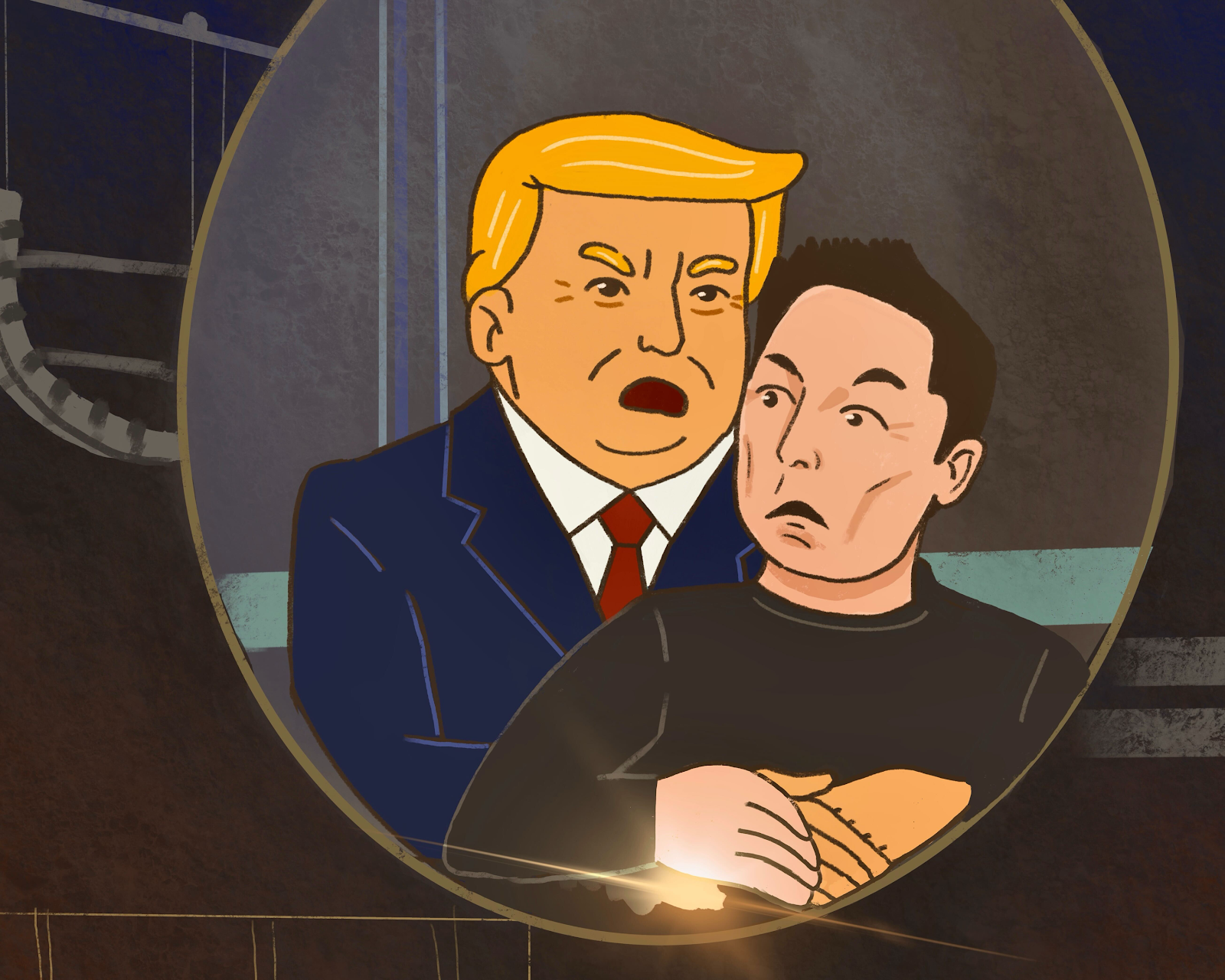In today’s political climate, the official White House accounts post AI-generated king memes of the U.S. President. Kamala Harris branded her 2024 campaign using Charli XCX’ “Brat” album to appeal to Generation Z more than defining the substance of her policies and beliefs. And Donald Trump and Elon Musk’s so-called bromance surfaced online arguably more than the policy proposals the administration pushed.
The sheer volume of political memes wouldn’t be as alarming if people were discussing real policy matters at the same frequency. Instead, this humor shapes what many people think they believe about politics because they source their political opinions from the same social media apps that entertain them. Political memes’ growing convergence of comedy and politics dominates the way many people form their political beliefs.
Online creators sharing their political beliefs is an expected outcome of social media. However, popular influencers post about whatever’s trending in the news and frame themselves as political experts, which brings up a credibility issue. Many of these creators lack any credible background in policy or government, yet are primarily sharing their unresearched, personal opinions and the persona they hope to communicate online. Their posts can reach millions of people. Users begin to echo the views of influencers and creators they admire, following them in a shallow, loyalty-based way rather than critically thinking about each policy matter and creating an informed decision for themselves.
It is also important to note that many influencers use the political memes they share online to appear more likable to the public. They do not prioritize the policies they hope to pass but engage in a clicks-based competition over which groups they can lure in and gain through likability.
Since online short-form video content and political memes are easier to digest than complex news stories, many people turn to them rather than getting their news from unbiased, reputable sources. However, the public’s understanding on multiple contemporary talking points including immigration reform, the economy and the Israel-Palestine conflict — among many others — are misrepresented in their full complexity and oversimplified into a few popular slogans.
In Kamala Harris’s 2024 campaign branding initiative, her team adopted the newest and biggest album release of the summer to create a number of political memes. The branding was a capitalization tactic and a gambit to get the youth on board with her campaign without effectively communicating where she stood on policy matters.
However, using only the likeness of the BRAT album was the wrong tactic to use. The political memes resulted in an “anyone but Biden” approach and lacked discussion of the matters Harris wanted to prioritize and get across to her young voters.
The same can be said for Donald Trump, whose political presence online is often driven more by political memes to a loyal fandom than many of the policies he stands for. Trump will oftentimes provoke the left and appeal to his devoted supporters by posting political memes and AI-generated content aimed at both the media and his fanbase. Much of this is a personality and imaging strategy to get people on board with his campaign and supporting him as a charismatic leader.
It’s important to hold leaders accountable when they’re using more of their personality and image to speak for themselves rather than communicating the policies they vow to stand for first. And political memes aren’t helping with this.
As such, voters need to keep in mind that they must form their opinions by doing real research and reflecting on their personal beliefs. It’s unwise to trust a specific politician, influencer or social media account to stand for the policies that will suit their best interests. It’s also not enough to trust someone online to inform you of all of your values. If your favorite influencer supports a certain policy or candidate, you might feel that it’s convenient to agree with everything they promote, but you shouldn’t.
Political views aren’t about blindly agreeing with every stance of someone you admire. It may seem easier to rely on your favorite influencers to be your political informants, but it takes away from your independent thinking about the policies that matter to you most and what you feel you should be prioritizing. Influencers may have differing priorities from you.
Instead, these memes are making it seem as though real-world political issues — including immigration, war and the economy — are not as substantial as we’d think. Turning these to political memes makes it easier to forget that actual lives are at stake, which is the wrong direction to take.
Julia Kremenetsky is an Opinion Staff Writer for the summer 2025 quarter. She can be reached at jkremene@uci.edu.
Edited by Isabella Ehring and Annabelle Aguirre


